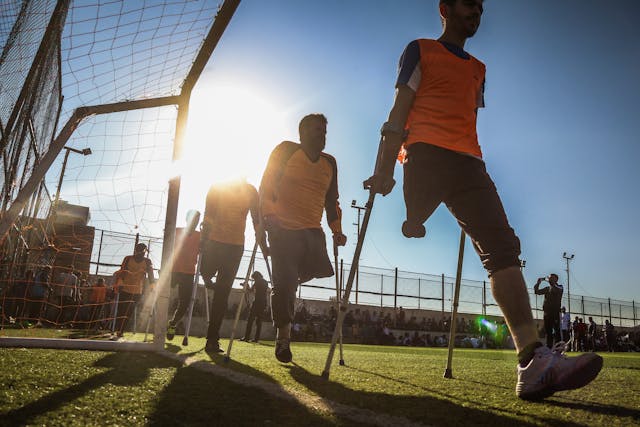
Disability Benefits
Disability benefits are vital financial aids designed to support individuals with disabilities.
In Kenya, these benefits play a crucial role in ensuring that persons with disabilities can lead dignified lives, access essential services, and contribute to society. This blog will delve into what disability benefits are, the types available to Kenyans, how to apply for them, and the qualifications needed to access these benefits.
What Are Disability Benefits?
Disability benefits are financial support services provided to individuals who have physical, mental, or sensory impairments that significantly hinder their ability to perform daily activities. These benefits aim to alleviate the financial burden that often accompanies disabilities and provide necessary assistance for healthcare, rehabilitation, and living expenses.
In Kenya, the legal framework governing disability benefits is primarily outlined in the Persons with Disabilities Act 2003. This act seeks to promote the rights and welfare of persons with disabilities, ensuring their inclusion in societal activities.
Types of Disability Benefits Available in Kenya
Kenya offers various disability benefits that cater to different needs. Some of the key benefits include:
1. Cash Transfer Programs
The government of Kenya administers cash transfer programs for persons with disabilities through the National Council for Persons with Disabilities (NCPWD). This initiative provides direct financial assistance to eligible individuals to help them meet their daily needs.
2. Disability Allowance
The Disability Allowance is a monthly payment provided to individuals with disabilities. This allowance aims to help cover the costs associated with healthcare, mobility aids, and other essential expenses.
3. Medical Services and Rehabilitation
Persons with disabilities are entitled to free medical services in public hospitals. The government also provides access to rehabilitation services, including physiotherapy and occupational therapy, ensuring that individuals receive the necessary support to improve their quality of life.
4. Education Support
Under the Persons with Disabilities Act, children with disabilities are entitled to free and compulsory education. The government also provides funding for special schools and inclusive education programs, ensuring that all children can access quality education.
5. Employment Opportunities
The Kenyan government promotes the employment of persons with disabilities through affirmative action policies. Companies that employ a certain percentage of persons with disabilities can benefit from tax exemptions and other incentives.

How to Apply for Disability Benefits in Kenya
Applying for disability benefits in Kenya involves several steps:
1. Obtain a Disability Card
To access most benefits, individuals must first obtain a disability card. This card serves as official documentation of a person’s disability and is essential for applying for various government services.
2. Registration with the National Council for Persons with Disabilities (NCPWD)
Individuals must register with the NCPWD to receive disability benefits. This involves filling out a registration form and providing relevant documents, such as medical reports and identification cards.
3. Submit an Application for Benefits
Once registered, individuals can apply for specific benefits, such as the cash transfer or disability allowance. Applications typically require supporting documentation, including proof of disability and financial status.
4. Follow-Up and Approval
After submitting the application, individuals should follow up with the NCPWD to check the status of their benefits. The approval process may take some time, but it is essential to remain persistent.
What Qualifies One as a Disabled Person?
To qualify for disability benefits in Kenya, individuals must meet specific criteria:
1. Medical Evidence
A qualified medical professional must assess and certify the individual’s condition. This certification is crucial for obtaining a disability card and applying for benefits. Common disabilities recognized under Kenyan law include physical impairments, visual impairments, hearing impairments, and intellectual disabilities.
2. Impact on Daily Life
The disability must significantly hinder the individual’s ability to carry out daily activities. This can include difficulties in mobility, communication, or self-care. The NCPWD evaluates the extent to which the disability affects the individual’s functionality.
3. Age and Residency
Applicants must be residents of Kenya and typically should be of working age to qualify for certain benefits. However, children with disabilities also qualify for education and healthcare support under the Kenya Disability Act 2003.
Rights of Persons with Disabilities in Kenya
The Rights of Persons with Disabilities in Kenya are well protected under various laws and regulations. The Constitution of Kenya and the Persons with Disabilities Act emphasize the importance of inclusion, accessibility, and equal opportunities for individuals with disabilities.
Key Rights Include:
- Right to Equality: Persons with disabilities have the right to equal treatment under the law and should not face discrimination in any form.
- Right to Accessibility: Public facilities and services must be accessible to persons with disabilities, ensuring their full participation in society.
- Right to Education: All children with disabilities have the right to free and compulsory education in an inclusive environment.
- Right to Employment: Persons with disabilities are entitled to fair employment opportunities and should not face barriers in the workplace.
Benefits of the Disability Card in Kenya
The disability card in Kenya is a crucial document that provides various benefits, including:
- Access to Financial Aid: The card is often required to access cash transfer programs and allowances, ensuring that individuals receive the necessary financial support.
- Healthcare Services: The disability card allows individuals to access free medical services in public hospitals, significantly reducing healthcare costs.
- Educational Support: For children with disabilities, the card facilitates access to inclusive education and special educational services.
- Employment Advantages: Employers may offer job opportunities or incentives to individuals holding a disability card, fostering inclusivity in the workplace.
The Role of Government and NGOs
The Kenyan government, alongside various non-governmental organizations (NGOs), plays a crucial role in promoting disability benefits. They work together to raise awareness, advocate for the rights of persons with disabilities, and improve access to services and support systems.
Key Initiatives Include:
- Community Outreach Programs: These initiatives educate the public about disability rights and benefits, encouraging more individuals to seek assistance.
- Partnerships with Healthcare Providers: Collaborating with healthcare professionals ensures that persons with disabilities receive timely medical assessments and services.
- Support for Employment Programs: NGOs often provide training and employment opportunities for individuals with disabilities, helping them integrate into the workforce.
Navigating Disability Benefits in Kenya
Understanding and accessing disability benefits in Kenya is essential for ensuring the well-being and dignity of persons with disabilities. By providing financial assistance, healthcare services, and educational support, the government and various organizations work to create an inclusive society.
If you or someone you know qualifies for these benefits, taking action is vital. Start by applying for a disability card, register with the NCPWD, and explore the range of benefits available. Together, we can build a society where everyone, regardless of their abilities, can thrive.






